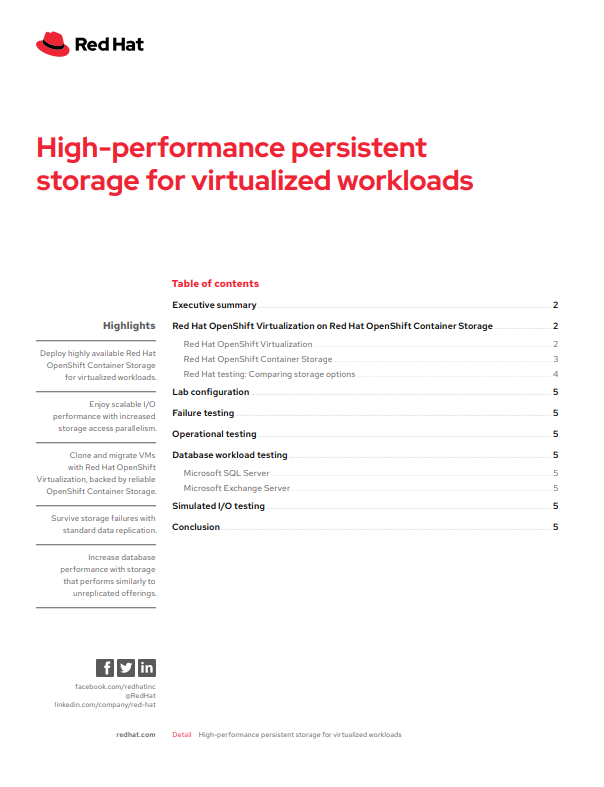Kubernetes misconfiguration unknowingly exposed data of Fortune 500 firm, hundreds more
The Kubernetes misconfiguration could have had serious ramifications for the company


An unnamed Fortune 500 company with a “multi-billion dollar” revenue stream could have been exposed to cyber attacks due to misconfigured Kubernetes clusters, according to new research.
Analysis of Kubernetes flaws by Aqua Nautilus found that more than 350 organizations and open source projects worldwide were left vulnerable for several months due to a series of common misconfigurations.
One misconfiguration uncovered by researchers would have allowed threat actors anonymous access to Kubernetes clusters with privileges.
The second - and “less well-known” - issue highlighted in the study was a misconfiguration of the ‘kubectl’ proxy that “unknowingly exposed” Kubernetes clusters to the internet, leaving organizations at risk.
Researchers said that at least 60% of clusters affected by these misconfigurations were breached and had an “active campaign with deployed malware and backdoors”.
“The exposures were due to two misconfigurations, emphasizing how known and unknown misconfigurations are actively exploited in the wild and can be catastrophic,” researchers said.
Among the vulnerable organizations identified by Aqua, one was a “small analytics” firm that, had it been breached, likely wouldn’t have made headlines.
Get the ITPro daily newsletter
Sign up today and you will receive a free copy of our Future Focus 2025 report - the leading guidance on AI, cybersecurity and other IT challenges as per 700+ senior executives
RELATED RESOURCE

Application performance management for microservice applications on Kubernetes
How to improve business-critical app performance in a Kubernetes environment.
However, the firm in question had close ties to a “top-tier” Fortune 500 company, researchers revealed.
Given that this company was an analytics services provider, the exposed Kubernetes cluster was found to contain a high volume of highly sensitive information hosted on various databases within the cluster.
“Since the cluster was exposed, this data was exposed, and the exposure of this data could significantly impact the business operations of this large enterprise,” researchers said.
This example underlines the potential knock-on effects that common Kubernetes misconfigurations could have for businesses spanning a range of industries.
A high volume of open source projects was found to be at risk during the investigation, which could have inadvertently triggered a supply chain incident that would affect millions of users.
“In the wrong hands, access to a company’s Kubernetes cluster could be business ending,” said Assaf Morag, lead threat intelligence analyst at Aqua Nautilus.
“Proprietary code, intellectual property, customer data, financial records, access credentials, and encryption keys are among the many sensitive assets at risk,” said Assaf Morag, lead threat intelligence analyst at Aqua Nautilus.
Morag said the growing popularity of Kubernetes in recent years has offered businesses “undeniable prowess” in managing containerized applications, but this study shows many are entrusting highly sensitive information in their clusters without a detailed understanding of potential risks and management techniques.
“Misconfigurations continue to persist across organizations of all sizes and industries,” he said.
“There is clearly a gap in security knowledge and management of Kubernetes. These findings underscore the extensive damage that can result if vulnerabilities are not properly addressed.”
The adoption of containers was also highlighted as one of the key risk factors affecting the security of cloud environments by Google Cloud last week.
Its August Threat Horizons report found that telecoms companies are facing a marked increase in attacks on their cloud environments, though much of these were DDoS in nature.
Additionally, Google Cloud also noted that user-driven errors were blamed for most of the successful compromises of cloud environments in the first quarter of the year.
Misconfigurations accounted for 19% of all incidents in the company’s telemetry. As well as opening access to Kubernetes clusters, misconfigurations elsewhere in the cloud were also often linked to the exposure of APIs and UI sensitivity too.

Ross Kelly is ITPro's News & Analysis Editor, responsible for leading the brand's news output and in-depth reporting on the latest stories from across the business technology landscape. Ross was previously a Staff Writer, during which time he developed a keen interest in cyber security, business leadership, and emerging technologies.
He graduated from Edinburgh Napier University in 2016 with a BA (Hons) in Journalism, and joined ITPro in 2022 after four years working in technology conference research.
For news pitches, you can contact Ross at ross.kelly@futurenet.com, or on Twitter and LinkedIn.
-
 Bigger salaries, more burnout: Is the CISO role in crisis?
Bigger salaries, more burnout: Is the CISO role in crisis?In-depth CISOs are more stressed than ever before – but why is this and what can be done?
By Kate O'Flaherty Published
-
 Cheap cyber crime kits can be bought on the dark web for less than $25
Cheap cyber crime kits can be bought on the dark web for less than $25News Research from NordVPN shows phishing kits are now widely available on the dark web and via messaging apps like Telegram, and are often selling for less than $25.
By Emma Woollacott Published
-
 UK enterprises lead the way on containerization, but skills gaps could hinder progress
UK enterprises lead the way on containerization, but skills gaps could hinder progressNews The UK risks fumbling its lead on cloud native deployments due to skills issues, according to Nutanix’s Enterprise Cloud Index (ECI) survey.
By George Fitzmaurice Published
-
 Is the Kubernetes security deficit widening?
Is the Kubernetes security deficit widening?In-Depth Kubernetes and containerization are surging in popularity but organizations are worrying over unaddressed cyber security risks
By Keri Allan Published
-
 Top considerations for building a modern edge infrastructure
Top considerations for building a modern edge infrastructureWhitepaper Extend hybrid cloud capabilities all the way to data sources and end users
By ITPro Published
-
 High-performance persistent storage for virtualised workloads
High-performance persistent storage for virtualised workloadsWhitepaper Evaluating the performance of Red Hat OpenShift Container Storage
By ITPro Published
-
 Red Hat lambasts "unusual" University of Minnesota research approach in Linux feud
Red Hat lambasts "unusual" University of Minnesota research approach in Linux feudNews Establishing trust and transparency is key to open source research that actually matters, the company claims
By Keumars Afifi-Sabet Published
-
 Red Hat launches OpenShift Platform Plus alongside new managed cloud services
Red Hat launches OpenShift Platform Plus alongside new managed cloud servicesNews A tertiary OpenShift tier comes alongside three apps for businesses to build on their Kubernetes-based hybrid cloud strategy
By Keumars Afifi-Sabet Published
-
 Red Hat bolsters Edge strategy with major RHEL platform update
Red Hat bolsters Edge strategy with major RHEL platform updateNews Red Hat Enterprise Linux 8.4 brings container deployment and management tools scaled around edge requirements
By Keumars Afifi-Sabet Published
-
 Amazon and Red Hat partner on bringing OpenShift to AWS
Amazon and Red Hat partner on bringing OpenShift to AWSNews The ROSA managed service makes it easier to build, scale and managed Kubernetes clusters on AWS
By Keumars Afifi-Sabet Published